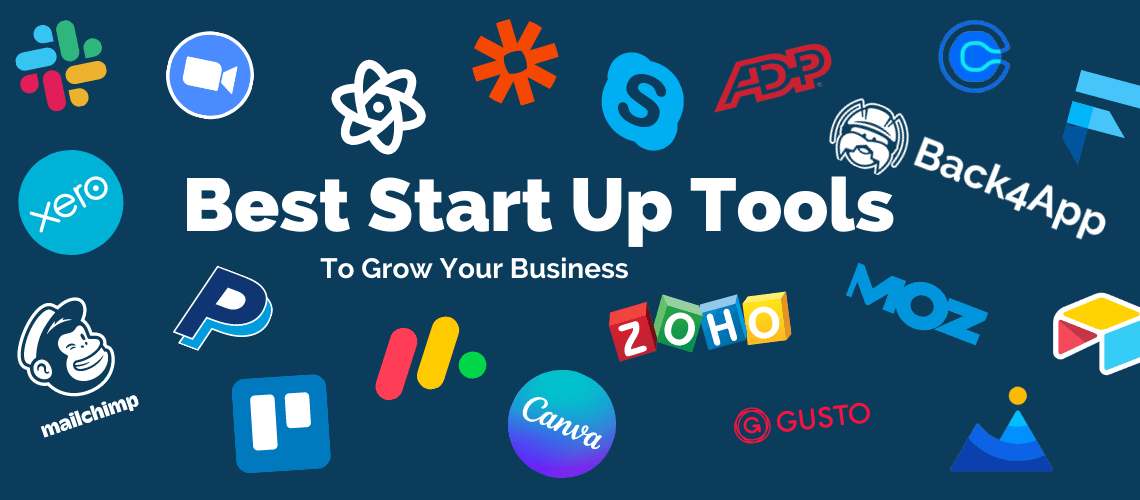
Starting a business is exciting, but managing finances effectively can be one of your greatest challenges. Fortunately, there are many financial tools and resources available to help your startup achieve its goals while minimizing risks. Whether you’re looking for funding opportunities or strategies to manage your cash flow, there’s a solution out there for every entrepreneur.
Here are eight essential financial tools and strategies that every startup should consider.
1. Small Business Administration (SBA) Loans
SBA loans are a top choice for startups looking for affordable and flexible funding. These loans are government-backed, which often means lower interest rates and longer repayment terms compared to traditional loans. Whether you’re launching your first venture or expanding an existing one, SBA loans provide a structured way to fund your goals without overwhelming financial pressure. For entrepreneurs exploring similar financing options, Business Loans Canada
offers access to flexible funding solutions tailored to small business needs across the country.
For startups interested in franchising, SBA loans can be especially beneficial. For example, starting an SBA loan franchise allows you to benefit from predictable business models with financial backing designed specifically for that purpose. This reduces upfront risks while setting you up for sustainable growth.
Pro Tip: To improve your chances of approval, develop a detailed business plan that highlights your financial projections and strategy for success.
2. Accounting Software
Keeping track of your finances is crucial, especially for startups where every dollar counts. Accounting software such as QuickBooks or Xero can automate invoicing, track expenses, and manage payroll, saving you time and effort.
Additionally, these tools generate financial reports, offering insights that help you make informed decisions about your business. By leveraging accounting software, startups can avoid manual errors and stay compliant with tax regulations.
Pro Tip: Choose software that integrates seamlessly with other tools your startup uses, such as payment processors or inventory management systems.
3. Crowdfunding Platforms
Crowdfunding platforms like Kickstarter or Indiegogo allow startups to raise capital while simultaneously building a loyal customer base. This approach enables you to validate your business idea by directly engaging with your target audience. Contributors often receive early access to your products or other rewards, creating excitement around your launch.
For example, Pebble Technology raised over $10 million on Kickstarter, proving the viability of their innovative smartwatch concept.
Pro Tip: Invest in creating a compelling campaign video and communicate the value your product offers to maximize your crowdfunding success.
4. Business Expense Management Tools
Expense management tools such as Expensify or Divvy simplify tracking and controlling expenses for your startup. These platforms allow founders and employees to submit receipts, track spending in real-time, and allocate budgets to specific projects or departments.
Having an efficient expense management tool in place ensures that your startup remains financially disciplined and reduces the risk of overspending.
Pro Tip: Look for tools that offer custom reporting capabilities to gain deeper insights into your spending patterns.
5. Grants and Funding Programs
For startups that align with specific missions or industries, grants can be a powerful and risk-free funding option. Unlike loans, grants do not require repayment, making them an appealing choice for entrepreneurs.
For instance, the Small Business Innovation Research (SBIR) program offers grants to businesses focused on research and development.
Pro Tip: Tailor your applications to highlight how your business meets the grant provider’s objectives. Clearly define the community or industry impact your project will create.
6. Venture Capital (VC)
If your startup has the potential for rapid growth, venture capital funding could be the right path. Venture capital firms invest in businesses they believe can deliver a high return on investment. Along with funding, VCs often provide access to valuable mentorship and networks.
While this option does require giving up partial equity, it can fast-track the success of high-potential startups. Companies like Uber and Airbnb relied on VCs to become household names.
Pro Tip: Create a well-designed pitch deck and be prepared to explain how your business model is scalable and unique.
7. Financial Forecasting Tools
Forecasting tools such as Float or PlanGuru help startups project future revenue, costs, and cash flow. These insights allow you to anticipate challenges and adjust your strategy accordingly. Accurate financial forecasting is especially important for startups as they scale and make critical decisions about investments and hiring.
Pro Tip: Use forecasting tools alongside your accounting software to build a comprehensive view of your startup’s financial health.
8. Payment Processing Tools
Today’s startups must offer frictionless payment processing to provide a seamless customer experience. Platforms like Stripe and Square simplify the payment process for both online and brick-and-mortar transactions. Additionally, these tools enable startups to analyze sales data and optimize pricing strategies.
Pro Tip: Choose payment processors with robust security measures to protect your customers’ information and build trust.
Final Thoughts
The financial tools and strategies available today can make a significant difference in your startup’s growth trajectory. From the reliable support of SBA loans to the innovative reach of crowdfunding, there’s no shortage of options to suit your specific needs. By leveraging these tools, you can streamline operations, secure funding, and position your startup for long-term success. Take the time to explore the options mentioned above and set your business on the path to financial stability and prosperity.